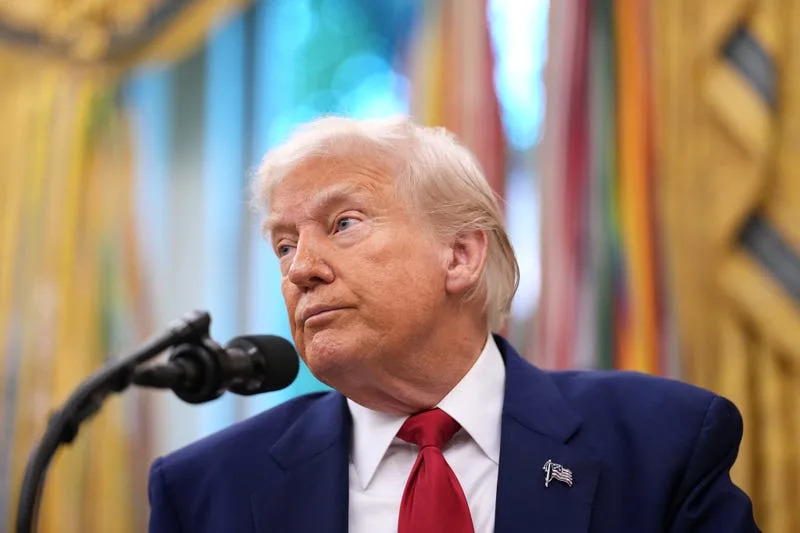
Across the globe, markets are cheering.
The U.S. Court of International Trade ruled Wednesday that President Donald Trump overstepped his authority by imposing sweeping tariffs under the International Emergency Economic Powers Act — a statute meant for national security threats, not trade policy. The court held that only Congress has the constitutional power to regulate foreign commerce, and issued a permanent injunction blocking Trump’s blanket tariff orders.
The ruling triggered an immediate relief rally late Wednesday and into early Thursday across sectors from tech to consumer staples and retailers.
The S&P gained around 0.3%. The Nasdaq climbed 1%, helped along by Nvidia earnings , while the Dow ticked up slightly. Premarket futures had pointed to a much stronger open, but fresh GDP data that hit circa 9:30 a.m. EST helped to moderate investors’ enthusiasm. Job numbers showing a rise in unemployment claims , above the level many economists had predicted, added to the unease.
Meanwhile, the legal and political fallout may be just beginning
The ruling deals a blow to one of Trump’s central economic strategies: using aggressive tariffs to pressure trading partners. Still, uncertainty remains. The administration immediately said it would appeal .
Also in response, Goldman Sachs ( GS ) released a memo saying, “For now, we expect the Trump administration will find other ways to impose tariffs.” Analysts at the investment bank listed other possible legal means which might allow the Trump White House to impose tariffs on trading partners.
Could the U.S. have to refund tariffs already paid?
Online, speculation hit a fever pitch as analysts and journalists questioned whether tariffs already collected might now have to be refunded. If the U.S. Court of International Trade’s ruling stands, the government may be required to refund all tariffs collected under Trump’s “reciprocal tariff” framework since April 2.
In such a scenario, refunds would go to the importers of record , typically U.S. businesses that paid tariffs at the border. These firms could file claims through U.S. Customs and Border Protection ( the agency which collected the tariffs ) to recover any duties paid.
In cases where foreign companies acted as importers or paid the tariffs directly, they could also be eligible for refunds. The money would likely come from the U.S. Treasury (which received the tariff money ), potentially adding billions in unexpected liabilities to the federal budget.
For the latest news, Facebook , Twitter and Instagram .

